Green transport - an inevitable step for sustainable tourism
The global tourism industry is entering a period of strong transformation. While two decades ago, digital technology changed the way tourists searched for information and booked services, now “green transformation” has emerged as a trend that is reshaping the entire value chain.
In Vietnam, the Ministry of Culture, Sports and Tourism (MCST) has identified green and digital transformation as two strategic pillars. Over the past two years, a series of programs have been implemented, such as launching a campaign to reduce plastic waste, building a system of green destination criteria, and promoting the application of digital technology in management and promotion.
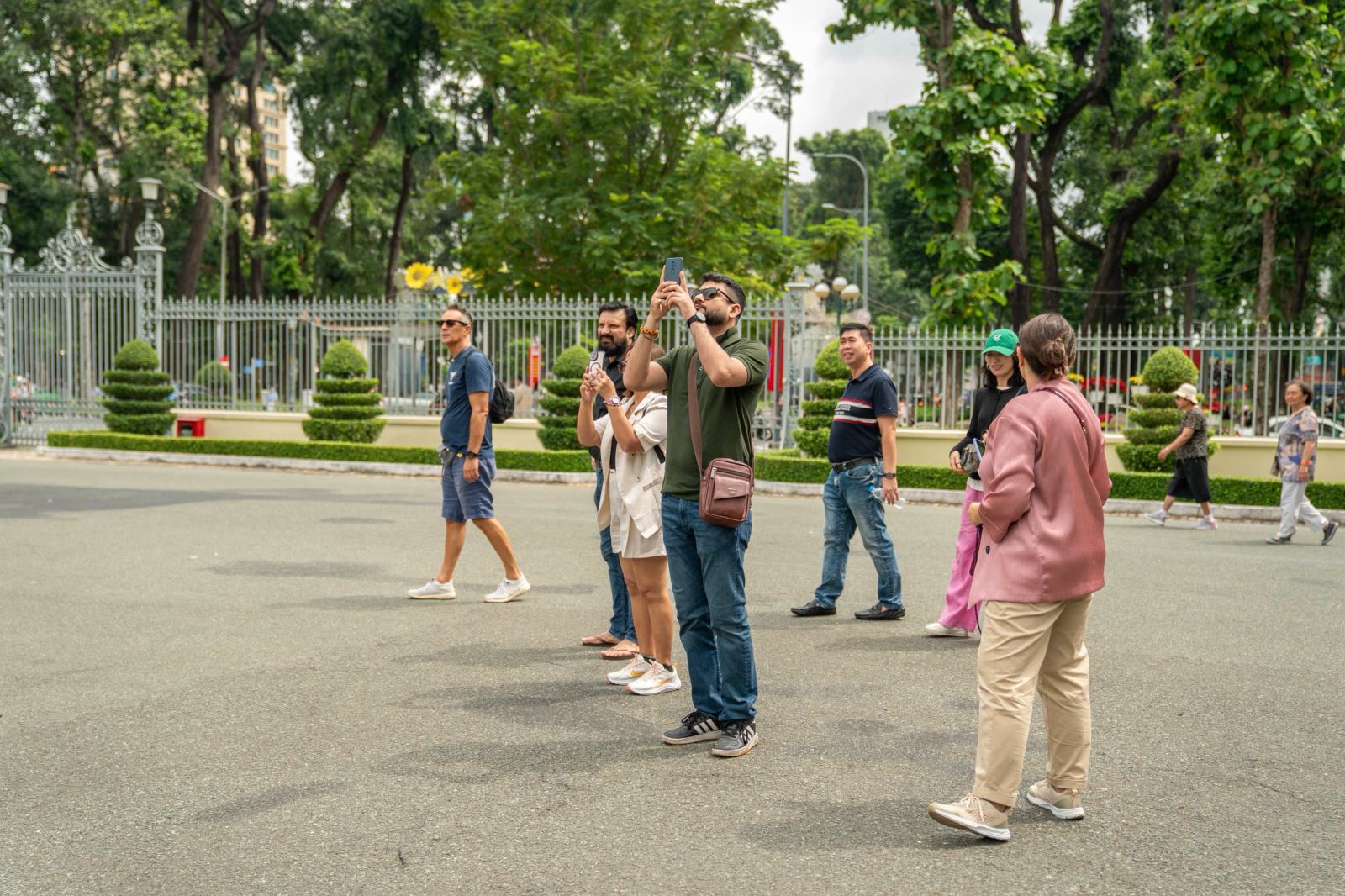
Mr. Ha Van Sieu, Deputy Director of the Vietnam National Administration of Tourism, said: “International visitors are increasingly concerned about environmental and community responsibility. An attractive destination not only needs beautiful landscapes and quality services, but also must demonstrate a commitment to sustainable development. Green transport is the “double key”, both enhancing the experience and creating a friendly national image.”
According to the Vietnam Tourism Association, by 2024, domestic trips by car will account for more than 60% of total trips by Vietnamese people and this trend will continue to increase in 2025. That makes transportation a key link. Many businesses have proactively taken the lead.
Singwing Lubricants Company Limited has launched a lubricant product that reduces emissions, saves fuel, and prolongs engine life. It has just signed a cooperation agreement with Petronas (Malaysia) to supply the Vietnamese market from October.
Mr. Nguyen Xuan Nghiem, Director of Singwing, said: “The product not only helps to operate vehicles sustainably but also connects green transportation with the tourism industry, bringing a better experience to tourists.”
In the tourism sector, large enterprises in Da Nang, Quang Ninh, and Ho Chi Minh City have introduced electric, hybrid, and low-emission cars into their tours. Mr. Nguyen Ngoc Tan, General Director of Sacotravel, commented: “The fuel and maintenance costs of green vehicles are lower in the long run, while also enhancing their reputation. For customers who value sustainability, this is a great advantage.”
Vietravel Group also cooperated with Vingroup to introduce electric vehicles into passenger transport services. Mr. Nguyen Quoc Ky, Chairman of the Board of Directors emphasized: "Green transportation is not only a social responsibility but also a business strategy. If Vietnam wants to compete with Thailand, Singapore or Indonesia in sustainable tourism, it must start with transportation."
Not only by road, some creative models such as solar-powered tourist boats in Ha Long, electric buses in Phu Quoc, and green shuttle buses in Hoi An have initially created positive effects, attracting international visitors.
Smart tourism - technology opens the way for development
Along with “greening”, the tourism industry is also accelerating “digitalization”. Applying 4.0 technology is considered a solution to enhance experiences and expand the market.
In Hanoi, many relics such as the Thang Long Heritage Conservation Center, the Vietnam Fine Arts Museum, and Hoa Lo Prison have launched online exhibitions and sold electronic tickets. Ho Chi Minh City has applied 3D technology at the War Remnants Museum, building an interactive tourist map with integrated virtual tour guides. Quang Ninh has attached QR codes to nearly 200 relics, helping visitors easily find information.
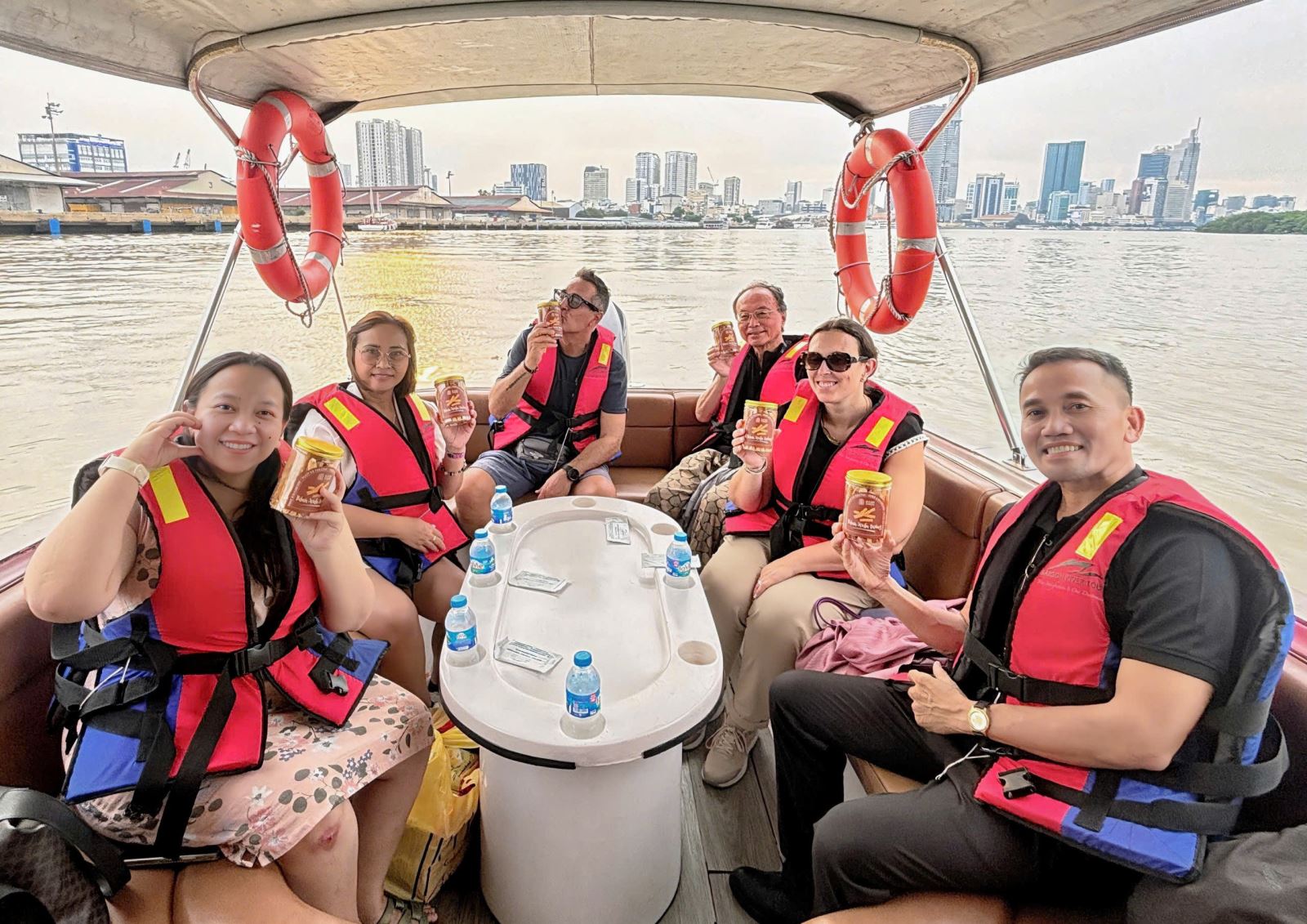
However, according to experts, smart tourism still has many bottlenecks. The reason is that most tourism businesses are small and medium-sized, have limited capital, and fragmented technology applications, while the online market is mainly dominated by international brands. Technology human resources in the industry are both lacking and weak.
Mr. Nguyen Minh Man, Deputy General Director of Vina Group pointed out: “Enterprises must boldly abandon old habits and worn-out ways to adapt to technology. Otherwise, Vietnamese tourism will find it difficult to compete in the fierce global context.”
To overcome this, the Ministry of Culture, Sports and Tourism has approved the Project “Application of 4.0 technology to develop smart tourism”, with the goal of building a digital ecosystem, focusing on tourists. Minister Nguyen Van Hung emphasized 5 solutions: Perfecting the law, developing the digital platform of the industry, enhancing data, promoting online promotion, training human resources and international cooperation.
Human resources once again become the key. Ms. Huynh Phan Phuong Hoang (Vietravel) said: “Tourism students need to be equipped with technology skills right from school, combined with internships at businesses. Digital human resources are the key to survival.”
Master Ngo Thi Quynh Xuan, Principal of Saigon Tourism College, also added: “The industry is both over- and under-staffed – over-generalized, under-qualified. Training programs must change to incorporate practical skills, foreign languages, and soft skills.”
Therefore, some schools have quickly updated their programs, sending students abroad for international internships such as Hungary to improve their vocational and technological skills. This is an opportunity to form a workforce that meets the requirements of digital transformation.
A survey by Booking.com shows that 72% of international visitors prioritize eco-friendly destinations, 65% want personalized experiences thanks to digital technology, and 53% are willing to pay more for sustainable services. This is an important basis for Vietnam to boldly invest in green transportation and smart tourism, forming a long-term competitive national brand.
Mr. Le Truong Hien Hoa, Deputy Director of the Ho Chi Minh City Department of Tourism, affirmed: “If we want to become a regional tourist super city, green and smart infrastructure is a must. Metro, electric cars, smart ports and green aviation will prolong stays and increase spending. When clean vehicles, digital services and national brands are upgraded, Vietnam will have a great advantage in the region.”
Last article: When health becomes the 'golden key' to travel
Source: https://baotintuc.vn/du-lich/du-lich-viet-nam-voi-cac-muc-tieu-khang-dinh-vi-the-bai-2nang-tam-du-lich-xanh-va-thong-minh-20250916150945471.htm


![[Photo] General Secretary To Lam attends the ceremony to celebrate the 80th anniversary of the post and telecommunications sector and the 66th anniversary of the science and technology sector.](https://vphoto.vietnam.vn/thumb/1200x675/vietnam/resource/IMAGE/2025/9/29/8e86b39b8fe44121a2b14a031f4cef46)

![[Photo] National Assembly Chairman Tran Thanh Man chairs the 8th Conference of full-time National Assembly deputies](https://vphoto.vietnam.vn/thumb/1200x675/vietnam/resource/IMAGE/2025/9/29/2c21459bc38d44ffaacd679ab9a0477c)
![[Photo] General Secretary To Lam chairs the meeting of the Central Steering Committee on preventing and combating corruption, waste and negativity](https://vphoto.vietnam.vn/thumb/1200x675/vietnam/resource/IMAGE/2025/9/29/fb2a8712315d4213a16322588c57b975)

![[Photo] Many streets in Hanoi were flooded due to the effects of storm Bualoi](https://vphoto.vietnam.vn/thumb/1200x675/vietnam/resource/IMAGE/2025/9/29/18b658aa0fa2495c927ade4bbe0096df)



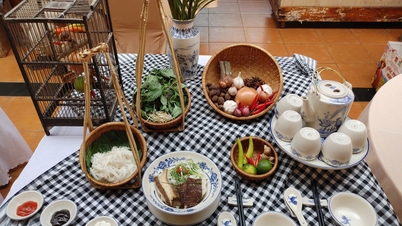








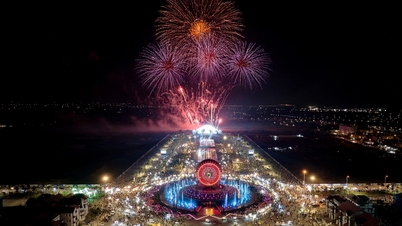
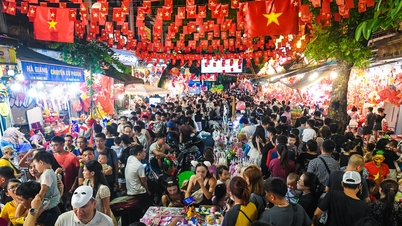
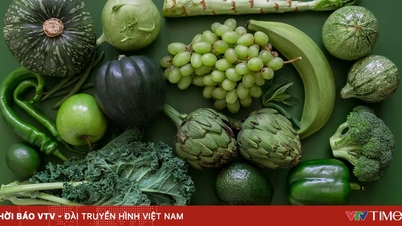

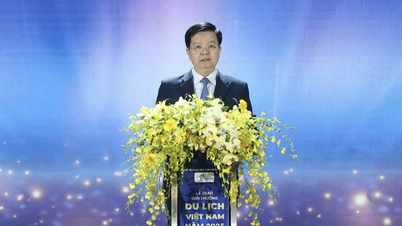





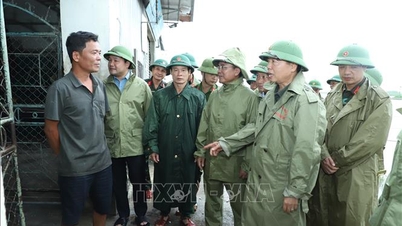

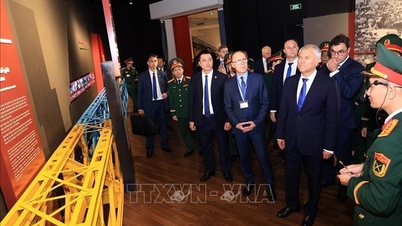
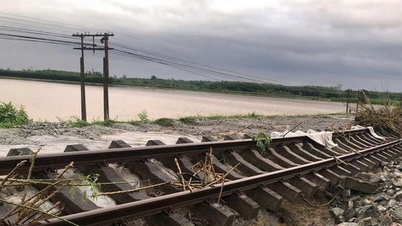










































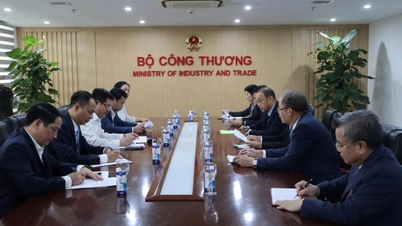




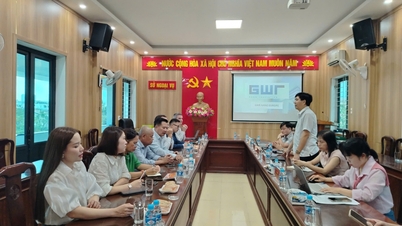






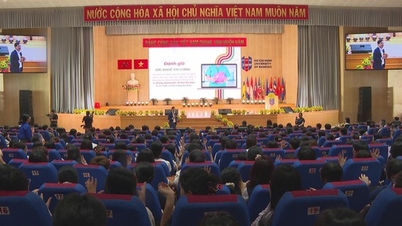











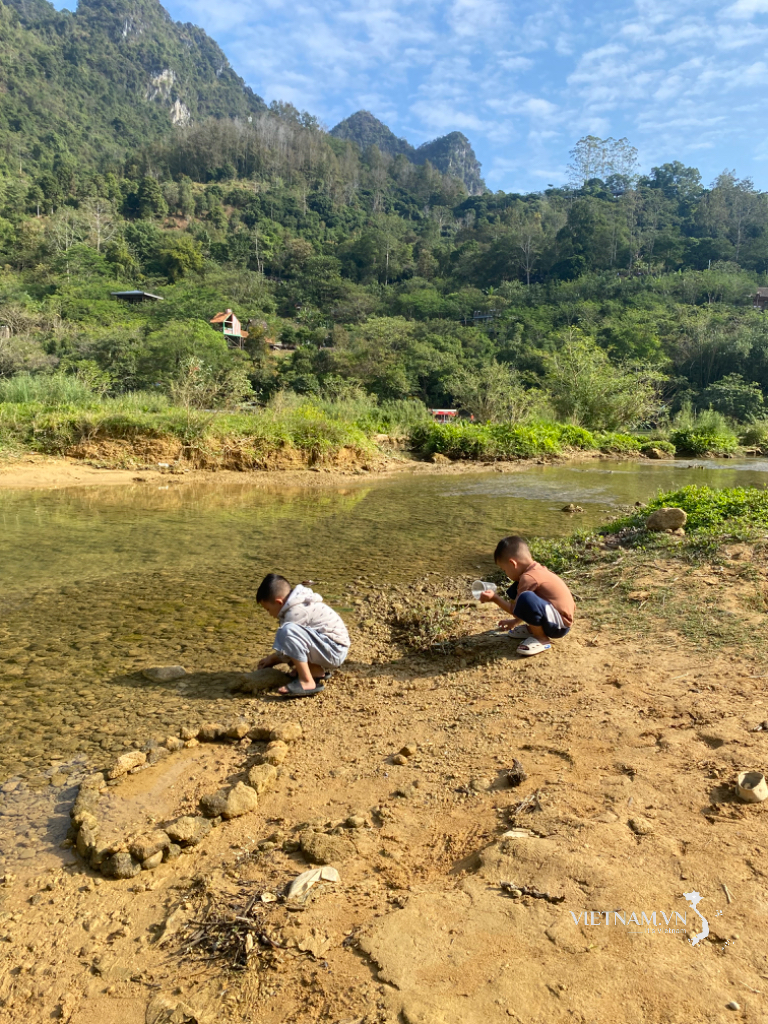



Comment (0)